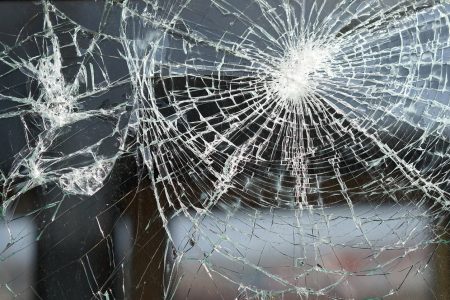Worried about riots? Make strikers less anonymous
To avoid demonstrations getting out of hand, make sure strikers can’t lose themselves in anonymity.
Originally published in Dutch on NRC.nl
Demonstrations, protests, and strikes are a common occurrence these days. First we had the climate protests of Extinction Rebellion, then strikes by farmers, construction workers, teachers, healthcare professionals… All these strikes have a huge impact on society: extra traffic congestion, public transport chaos, parents who can’t go to work, patients whose treatment is delayed. Some people believe that any benefits of strikes are far outweighed by the disadvantages. Others believe there is little point in striking if you don’t inconvenience people.
A sharp contrast
In the Netherlands the consequences of strikes are relatively minor in comparison with the recent demonstrations in Barcelona, for instance, where containers, cars, and motor bikes were set on fire. Or Hong Kong last summer, where protesters were showered with tear gas and at least 82 demonstrators were arrested.
Few would dispute that violence and vandalism during strikes cannot be tolerated. But how is it that, in a strike situation, people who normally wouldn’t hurt a fly can suddenly be found starting fires, destroying statues and monuments, or even physically attacking police officers?
Losing oneself in the group
We can find an answer to this question in socio-psychological research into group dynamics. In the 1960s the social psychologist Philip Zimbardo, familiar to many people for setting up the famous Stanford Prison Experiment, showed that in some cases people’s behaviour is more strongly influenced by the group than by the individual. He showed that if people merge into the group too much, they undergo deindividuation: they lose their personal identity and become one with the group. He claimed that when people lose their personal identity, they have diminished self-control and diminished self-regulation. This often leads to emotional, impulsive, and atypical actions. These actions may be positive, but are often negative and may lead to aggression, vandalism, stealing, unethical behaviour, and a general reduction in empathy.
Anonimity
There are various causes for this deindividuation. First of all, in a large, collective movement (which is what a strike effectively is), people often feel less identifiable. This degree of anonymity leads them to exhibit certain behaviour that they would never display if they were on their own. The anonymity is not only due to the size of the group. Researchers have also demonstrated that riots that take place at night, in the dark (when people again feel more anonymous), are often more violent than riots that take place in broad daylight. A second cause of deindividuation is that people feel less responsible for their actions in a large group than if they were acting alone, because it feels as though they can share part of the responsibility with the rest of the group. So this is another reason why strikers are more likely to exhibit negative behaviour.
Unethical
Although by no means all strikes are marred by negative and destructive behaviour, in the past it has often been the case that people exhibit immoral and unethical behaviour in groups and collective movements. This is often fuelled by anger about injustices that have been done to them.
So what could trade unions and organisations that initiate strikes do to ensure the event passes off peacefully, as has indeed been the case with most strikes in the Netherlands in recent years? It would help if they ensured that people feel less anonymous and more responsible for their actions. Certain small measures are easy to implement but can make a big difference: getting strikers to wear a name badge, for instance, giving them a specific task to be responsible for on the day, or dividing them into smaller subgroups. Such measures could ensure that strikes pass off peacefully and have maximum benefit for the strikers themselves and maybe for others too.



